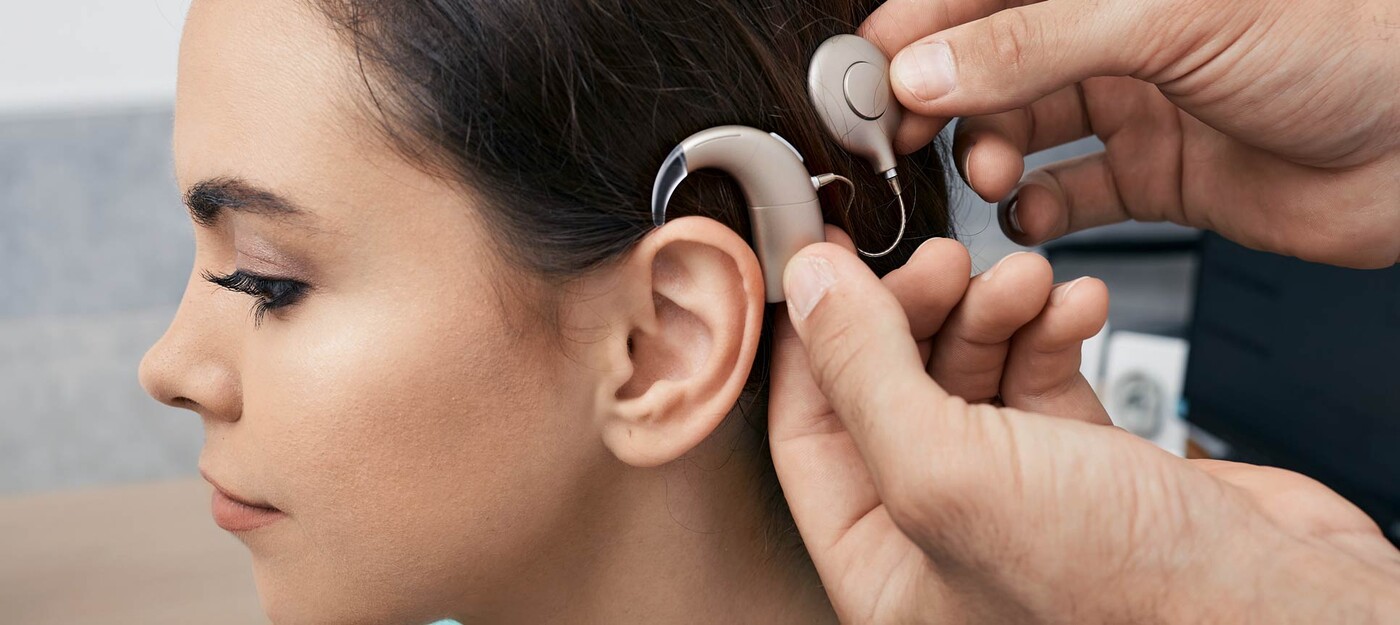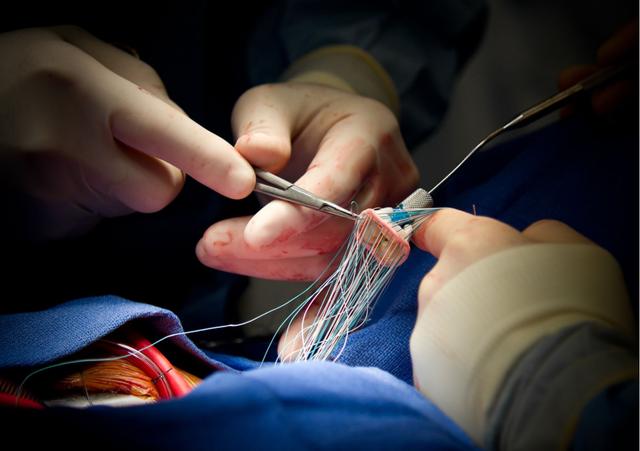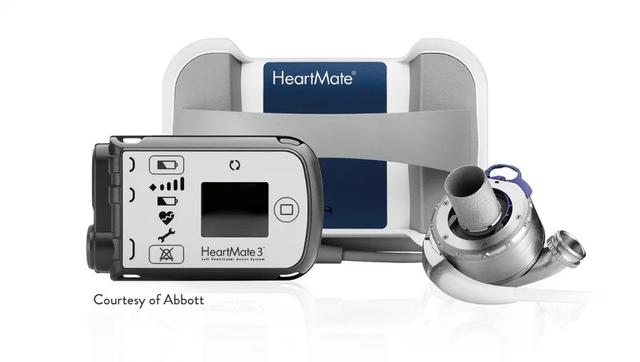
Cochlear Implant in India
A cochlear implant is a compact, compound electronic device that helps to provide a sense of hearing to a person who is extremely deaf or severely deafened. The implant consists of mainly two parts an exterior portion that sits behind the ear and a second portion that is placed under the skin through aciurgy (see figure).
An implant has the following parts:
- A recorder, which picks up sound from the environment.
- A microprocessor, which selects and filters sounds picked up by the microphone.
- A transmitter and receiver/stimulator, which receives signals from the sound processor and converts them into electrical impulses.
- An electrode formation, which is a group of electrodes that collects the impulses from the stimulator and sends them to different regions of the auditory nerve.
An implant does not regain normal hearing. Instead, it can give a deaf person a useful sensation of sounds in the vicinity and help him or her to understand speech.
How does a cochlear implant work?
The implant is very dissimilar from a hearing device. Hearing aids enhance sound waves so they can be detected by impaired ears. Cochlear implants bypass impaired portions of the ear and straightly stimulate the auditory nerve. Signals produced by the implant are sent through the auditory nerve to the brain, which identifies the signals as sound waves. Hearing along a cochlear implant is uncommon from normal hearing and takes time to grasp. However, it helps many people to detect warning signals, recognize other sounds in the environment, and understand speech in person or over the telephone.
Who gets cochlear implants?
Children and adults who are deaf or seriously damaged can be fitted with cochlear implants. The FDA first approved implants in the mid-1980s to cure hearing loss in adults. Since 2000, cochlear implants have been FDA-approved for deployment in impaired children beginning at 12 months of age. For young children who are deaf or severely impaired, using an implant while they are young exposes them to sounds during an optimal period to develop speech and language skills. Researches have revealed that when these children get a cochlear implant followed by intensive treatment before they are 18 months old, they can hear clearly, comprehend sound and music, and communicate then to their peers who get implants when they are older. Researches have also shown that entitled children who get a cochlear implant earlier than 18 months of age develop language skills at a figure comparable to children with normal hearing ability, and many qualify for it in mainstream classrooms. Some adults who got astray of all or most of their sound-capturing ability later in life can also gain from cochlear implants. They learn to recognize the signals from the implant with vibrations they remember, including spoken, without requiring any solid cues such as those provided by lipreading or braille language.
Cochlear implant surgery Cost in differnt countries
You can visualize the clear differnces among the cochlear implant surgery cost in India and other countries:
How does someone receive a cochlear implant?
The use of a cochlear implant requires both an aciurgy procedure and a good amount of therapy to learn or relearn the sense of hearing. Not everyone achieves the same level with this device. The decision to get an implant should involve talking with medical specialists, including skilled cochlear-implant surgeons. The process can be expensive but cheap and affordable in India.
Where can I find more data about cochlear implants?
The INDIAN MEDICAL TOURISM INDUSTRY has a huge capacity to facilitate cochlear implant patients all over the world, at an affordable price. The doctors are highly qualified and world-renowned surrounded by the latest technology and best architectural facilities. We have collaborated with all the major cochlear implant providers in India million.
If you have any questions related to cochlear implant surgery, please feel free to contact us at helpdesk@marlinmedicalassistance.com or WhatsApp at +91-8984 900 900
Don't know where to start? Leave us a request, and the Marlin Medical Assistance team will arrange your trip for treatment, where you will improve the quality of life and health.
Get in Touch with Medical Experts
Made in NextJs 13, by Digital Transformation Agency - Ima-appweb.com



